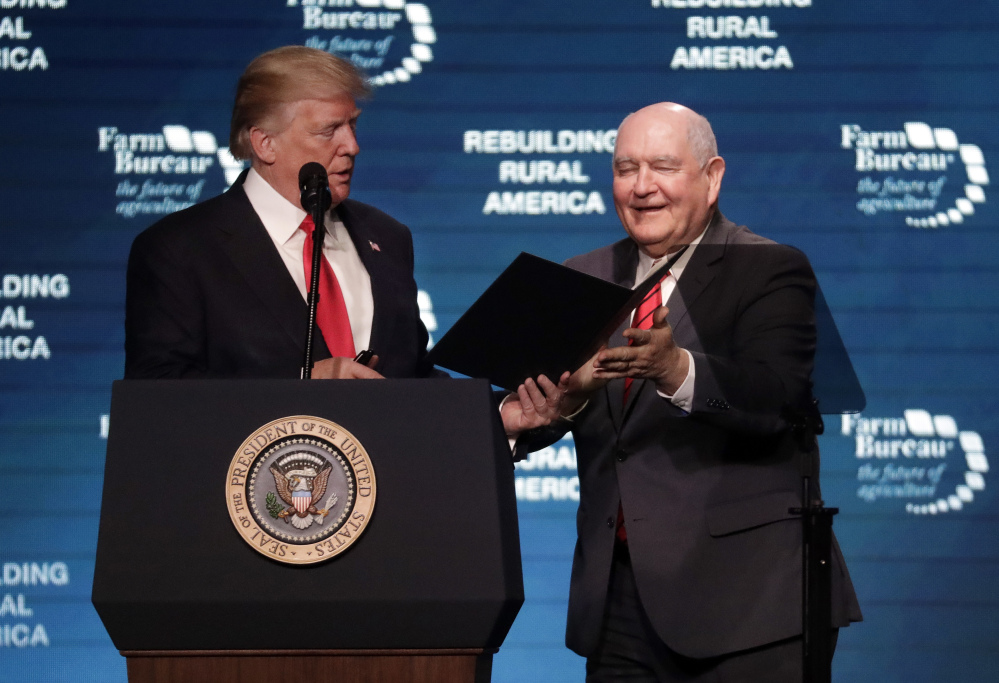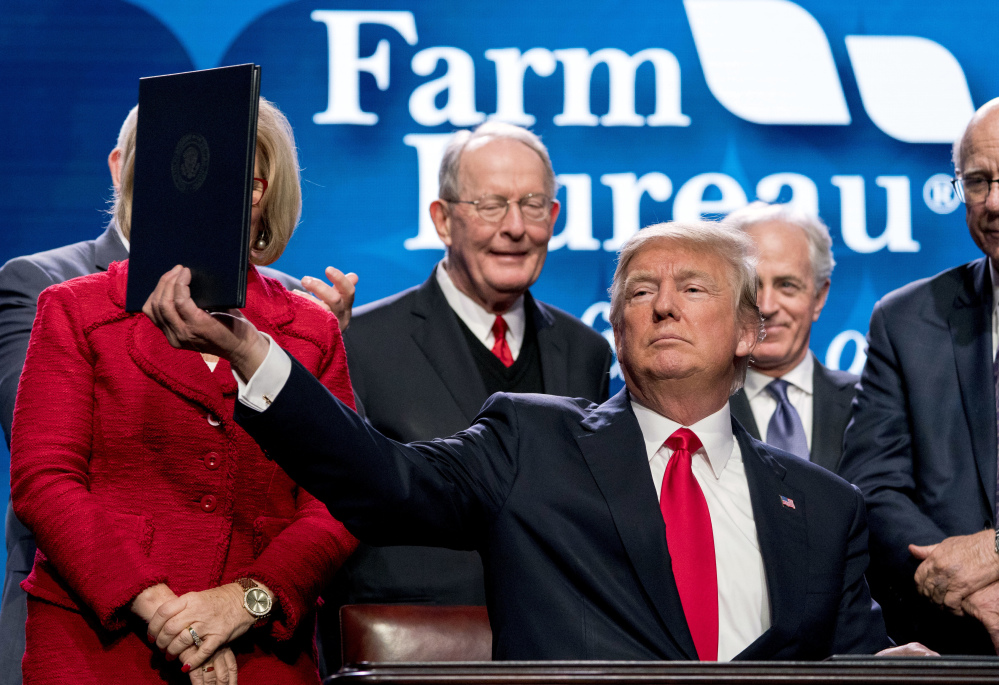NASHVILLE, Tenn. — President Trump pitched his efforts to help rural America, promoting his tax overhaul law and economic development plans Monday on a visit to Tennessee. He also reserved a seat at the national college football championship game Monday night in Atlanta.
Trump became the first president in a quarter-century to address the annual convention of the American Farm Bureau Federation. With the trip to Nashville, he unveiled a report the White House says will include proposals to stimulate a segment of the national economy that has lagged behind others.
Trump said most of the benefits of the tax legislation are “going to working families, small businesses, and who, the family farmer.”
The $1.5 trillion package that Trump signed into law last month provides generous tax cuts for corporations and the wealthiest Americans, and more modest reductions for middle- and low-income individuals and families.
The president warned against voting for Democrats in this November’s midterm elections, saying they would undo the tax bill. “If the Democrats ever had the chance, the first thing they would do is get rid of it and raise up your taxes,” he said.
Trump also highlighted the doubling of the threshold for the estate tax – earning a standing ovation from the audience– and the ability of companies to immediately write off the full cost of new equipment. He said that “in every decision we make, we are honoring America’s proud farming legacy.”
Central to the report is the assessment that the “provider for an equalization among rural America is connectivity; that high-speed internet should remain a high priority for the administration,” said Ray Starling, the special assistant to the president for agriculture, trade and food assistance. The report calls for expediting federal permitting to allow for broadband internet expansion in rural areas and for making it easier for providers to place cell towers on federal lands.
The president also took credit for working to roll back the Obama administration’s interpretation of the Clean Water Act, which had greatly expanded the list of bodies of water subject to federal regulation. The farm bureau ran a public relations campaign against the rule and called it “dangerous and unlawful.”
Send questions/comments to the editors.




Success. Please wait for the page to reload. If the page does not reload within 5 seconds, please refresh the page.
Enter your email and password to access comments.
Hi, to comment on stories you must . This profile is in addition to your subscription and website login.
Already have a commenting profile? .
Invalid username/password.
Please check your email to confirm and complete your registration.
Only subscribers are eligible to post comments. Please subscribe or login first for digital access. Here’s why.
Use the form below to reset your password. When you've submitted your account email, we will send an email with a reset code.